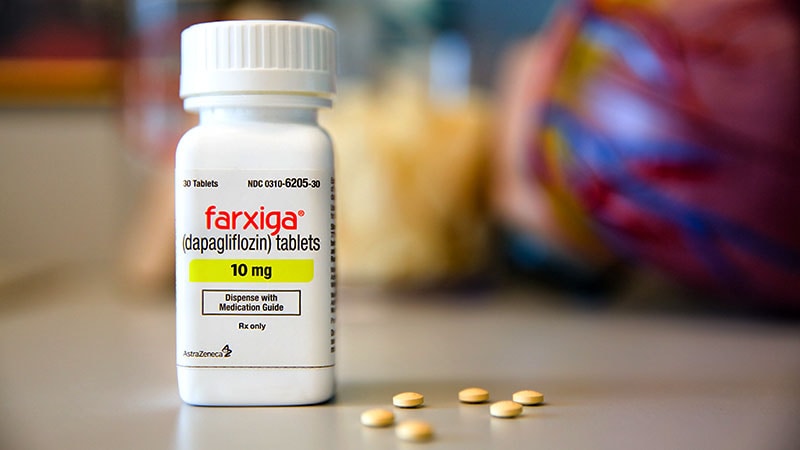Fitness
SGLT2s With Diuretics Improve Heart Failure Outcomes

LISBON — Patients with acute heart failure on the sodium-glucose cotransporter 2 (SGLT2) inhibitor dapagliflozin who received diuretic therapy experienced rapid decongestion with shorter hospital stays, report investigators of the ENDORSE-HF trial.
Adding dapagliflozin to diuretic therapy in acute heart failure patients “also increases natriuresis and improves the ejection fraction,” said study presenter Ioan Radu Lala, MD, PhD, a cardiologist at Arad County Emergency Clinical Hospital, Arad, Romania, at the Heart Failure Association of the European Society of Cardiology (HFA-ESC) 2024.
The ENDORSE-HF trial was carried out in 100 patients randomly assigned to standard therapy with or without dapagliflozin within 24 hours of presentation, and revealed a sharp reduction in pulmonary congestion by the time patients were discharged when given the combination.
The addition of the SGLT2 inhibitor allows “rapid, efficient decongestion, which facilitates the early introduction of the four pillars of heart failure therapies,” Lala said, namely SGLT2 inhibitors, angiotensin receptor–neprilysin inhibitors, beta-blockers, and mineralocorticoid receptor antagonists.
“We already know that this improves the prognosis, so we have the solution in our hands,” said Lala. He also pointed out that the combination was not associated with any severe adverse effects.
Safe Combination
“The important message is that the initiation of SGLT2 inhibitors during acute congestion is safe,” session co-chair Maria Rosa Costanzo, MD, a cardiologist at the Midwest Cardiovascular Institute in Naperville, Illinois, said during an interview.
This new study reinforces the findings of the DICTATE-AHF trial, she said, which included adults with hypervolemic acute heart failure, all of whom received a standard treatment protocol with intravenous (IV) loop diuretics.
Those results, presented at HFA-ESC 2023 showed that early initiation of dapagliflozin before hospital discharge was safe and improved diuresis and natriuresis while reducing the diuretic dose.
Costanzo co-wrote in an editorial accompanying DICTATE-HF that “the importance of reduced IV loop diuretics doses is not insignificant” because they “perpetuate the vicious circle of neurohormonal activation that hastens progression of cardiorenal failure.”
ENDORSE-HF also saw a reduction in diuretic doses with the addition of an SGLT2 inhibitor, but the result was not statistically significant. Lala said in an interview that this could be because they did not specify a protocol for IV diuretic use, instead relying on the “pure clinical judgement” of the participating physicians, who were perhaps used to giving higher doses to rapidly decongest the patient.
“Rapid is good, but it’s also about efficiency,” he said, adding that SGLT2 inhibition provides that efficiency with a more uniform reduction in congestion than diuretic therapy does, “which is very important as heart failure is not about just peripheral edema.”
Promising Precedent in Diabetes
Lala said the ENDORSE-HF team was inspired to examine the efficacy of adding dapagliflozin to loop diuretic therapy when they saw the very good results in patients who were on SGLT2 inhibitors and had diabetes, and emerging data that the drugs were not associated with hypotension or electrolyte abnormalities. So they thought, Why not give the drugs to decompensated patients with acute heart failure?
Lala said that he wanted the findings to challenge the prevailing mindset around heart failure management, which tends to be that “chronic heart failure therapy improves prognosis, while acute therapy does not.”
Costanza agrees; many hospitals in the United States still discontinue SGLT2 inhibitors when patients are admitted. “So I think the message of changing the mindset is a very important one,” she said.










